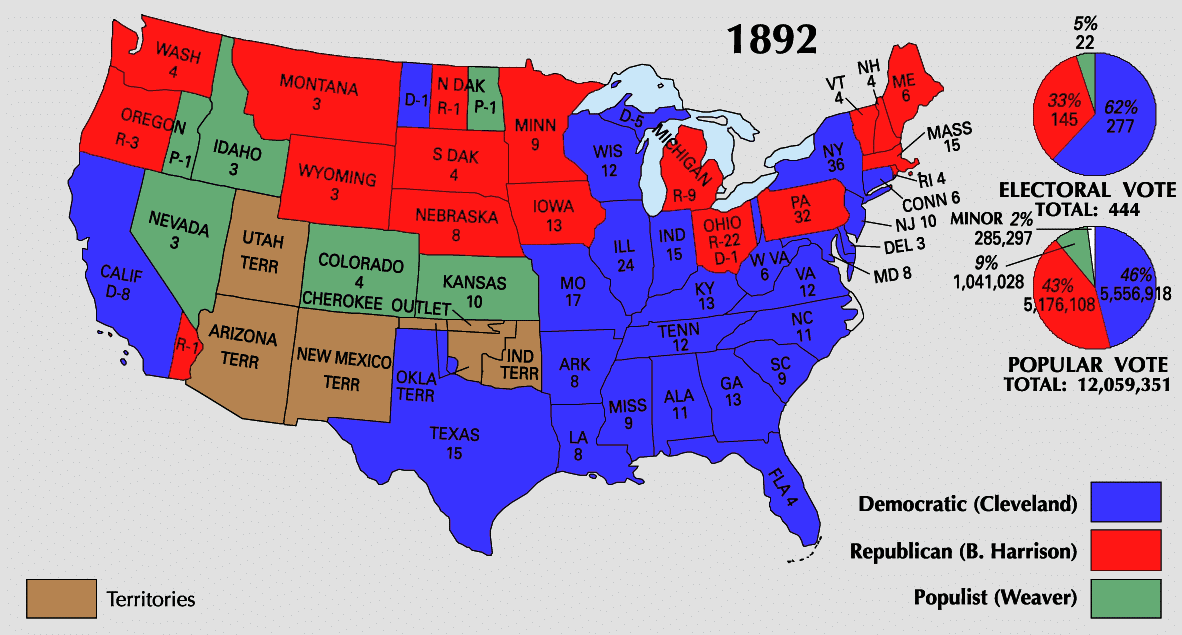The Presidential Election of 1892 would be the only election that would elect a candidate as President who had served as president, then lost the next election, and then won again.

Grover Cleveland would become the only Presidential candidate then and to date that served two non-consecutive terms.
America was beginning to take shape into the country it would become in the 20th century. The West was still wild, but through many reforms and brave lawmen, the famous gunslingers controlled the Wild West prior to and after the Civil War.
The nation had become more civilized, and Reconstruction was in the rearview mirror, with the Gilded Age coming up quickly. American Big Business was beginning to take control of the nation as well as its politics.
The candidates were as follows:
- Republicans: Benjamin Harrison and Vice President Whitelaw Reid
- Democrats: Grover Cleveland and Vice President Adlai Stevenson
Platforms
Republicans: Benjamin Harrison won the Republican nomination despite a close convention. Harrison was reluctant to run for a 2nd term but did so to try and block candidates he did not care for. The tariff issue dominated this rather lackluster campaign. Harrison defended the protectionist McKinley Tariff passed during his term. William McKinley campaigned hard for Harrison, which would set up his own run for President in 4 years.
Democrats: The Democrats rallied around Grover Cleveland for the third time. Harrison was a weak candidate and an easy target. Cleveland campaigned against the high tariff, and he also denounced the Lodge Bill, a voting rights bill that sought to protect the rights of African-American voters in the South.
Women's Suffrage, Civil Rights, and Prohibition all continued to gain momentum.
Outcome
Grover Cleveland defeated Benjamin Harris. Cleveland was the third of only five presidents to win re-election with a smaller percentage of the popular vote than in previous elections, although in the two prior such incidents James Madison in 1812 and Andrew Jackson in 1832 not all states held popular elections.
Ironically, Cleveland saw his popular support decrease not only from his electoral win in 1884 but also from his electoral loss in 1888.
A similar vote decrease would happen again for Franklin D. Roosevelt in 1940 and 1944 and Barack Obama in 2012.on easily as he swept the South and picked up key swing states.
This was one of the first elections when the Republicans took significant losses since the Civil War. They would make gains in the upcoming elections.
